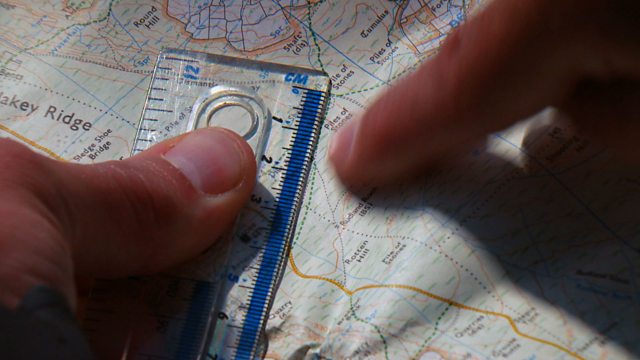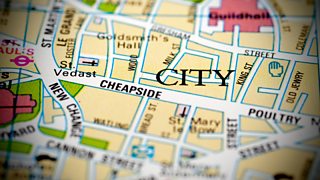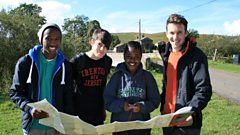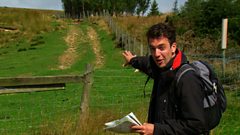
Using a map scale to gauge distance
Joe Crowley explains that because maps are drawn to scale, they can be used to work out exact distances between two points. Maps have different scales – a popular scale is 1:25,000. Joe points out on a map that this means that every measurement on the ground is exactly 25,000 larger than shown on the map. Each map will tell you its scale on the legend section. On the 1:25,000 series, this means that one centimeter on the map equals 250 meters in the real world. One way to gauge distance is to look at the blue lines on the map which denote eastings and northings. Each is one kilometer apart, so by counting how many your route crosses, you get a rough approximation of distance. Routes are rarely straight, so Joe shows to use a piece of strength to trace a route, and measure the length, giving a much more precise approximation.
Duration:
This clip is from
More clips from Get Lost
-
![]()
Navigational challenge - reading maps on the coast
Duration: 09:11
-
![]()
Navigational challenge - reading maps on the moors
Duration: 09:37
-
![]()
Navigational challenge - reading maps in the hills
Duration: 10:44
-
![]()
Rights of way
Duration: 02:27





